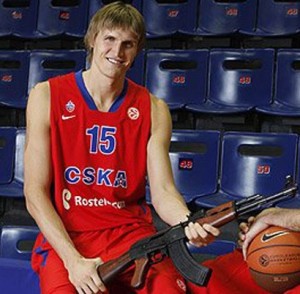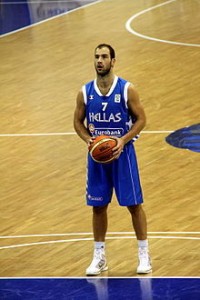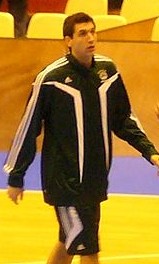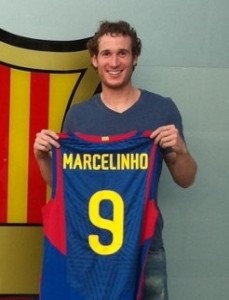 ISTANBUL — It’s a city so massive that it spans two continents, and even the taxi drivers have to stop and ask for directions. The five daily calls to prayer give Istanbul a conservative soundtrack, while folks who flock to Istiklal Street by the thousands soak up a nightlife that dares even the most adventurous party-goers to keep up.
ISTANBUL — It’s a city so massive that it spans two continents, and even the taxi drivers have to stop and ask for directions. The five daily calls to prayer give Istanbul a conservative soundtrack, while folks who flock to Istiklal Street by the thousands soak up a nightlife that dares even the most adventurous party-goers to keep up.
Venders hawk you through the halls of the Grand Bazaar, clamoring for your business in whichever language you’re willing to bargain; still, other locals have mastered the art of relaxation, leaning back into cushioned seats for hours at a time and pulling slowly on flavored tobacco through a water pipe (or nargile in Turkish).
This Friday, the last four Euroleague teams standing will venture within eyesight of Asia to settle the score. Their journeys here are as unique and varying as the Turkish megacity that’s hosting them.
CSKA Moscow bolstered their roster with NBA defects like Andrei Kirilenko and Nenad Krstic while stealing the at-times-dazed-but-never-confused, shaggy-haired assassin Milos Teodosic to run the point. All three were voted onto either the All-Euroleague first or second teams as CSKA plowed their way to 18 wins in 20 tries.
The reigning champs, Panathinaikos, dug their heels in as the NBA signing cyclone swirled around them, trusting their core of Mike Batiste and Dimitris Diamantidis to coaching mastermind Zeljko Obradovic, the owner of eight European titles.
If you’re expecting the Greens to cower at the sight of big, bad CSKA, you’re out of luck. Even if Moscow did take both of their regular season meetings.
Olympiacos hops the Aegean Sea to attend their first Final Four in two years. Of the 12 players who lost to Barcelona in the championship in Paris, only Panagiotis Vasilopoulos—who hasn’t appeared in a Euroleague game this season—remains.
 With their budget hacked off at the knees thanks to Greece’s economic woes, they retained a single star, Vassilis Spanoulis, around which lesser talent has aligned. With Spanny (my pick for Euroleague MVP) carrying the load and Dusan Ivkovic monitoring the ups and downs through his thick spectacles, the Reds have landed right where nobody thought they would.
With their budget hacked off at the knees thanks to Greece’s economic woes, they retained a single star, Vassilis Spanoulis, around which lesser talent has aligned. With Spanny (my pick for Euroleague MVP) carrying the load and Dusan Ivkovic monitoring the ups and downs through his thick spectacles, the Reds have landed right where nobody thought they would.
Finally there’s Barcelona, who held opponents to an historically miniscule 61.5 ppg, making them the stingiest Euroleague defense this millennium has ever seen while Juan Carlos Navarro, Erazem Lorbek and Pete Mickeal provided the offense.
And if it looks like these guys have been here before, it’s because they have.
Of the 44 Final Four teams in the last eleven years, 22—exactly half—have been named either CSKA Moscow, Olympiacos, Panathinaikos or Barcelona. For eight of those 11 seasons, one of those teams has hoisted the trophy, with Olympiacos the only one of the four left stranded at the threshold.
The last four league MVPs will all be in Turkey this weekend, too: CSKA’s Ramunas Siskauskas (2008), Barca’s Juan Carlos Navarro (2009), CSKA’s Milos Teodosic (2010 as a member of Olympiacos) and Panathinaikos’ Dimitris Diamantidis (2011).
Navarro has a Euroleague Final Four MVP to his name as well, Diamantidis has two, his teammate Sarunas Jasikevicius picked one up back in 2005 with Maccabi Tel Aviv and Vassilis Spanoulis of the Reds earned the same honor playing for his Greek rivals, Panathinaikos, in 2009.
(Think things might heat up if the two Greek teams meet in the finals? Nah, doubt it.)
Yes, this bunch boasts some experience. Yet no man is immune to the encumbrance of a single elimination format where every mishandled dribble, errant pass or blown layup is magnified a thousand times its original size. There’s no bouncing back from a game one loss; there’s no shot at redemption outside of those 40 minutes, each one oozing with a little more pressure than the last.
CSKA Moscow vs. Panathinaikos (Friday at 11:00 AM EST)
Kirilenko, Khryapa and Krstic have all been magnificent and Teodosic has lived up to his reputation as a maker of big shots and agitator of everyone, always. But let’s not forget Alexey Shved, the revelation we’ve all been waiting for.
Twenty-three years old with wiry limbs and a bright red shooting sleeve on his left arm, the holes in his game have started to fill up just as quickly as those in his once-wispy goatee. He’s still a little too casual with the rock, but his creativity and ability to hurt you off the bounce have reached a level where you live with the mistakes.
If Shved ever finds himself checked by Diamantidis, CSKA should swing the ball his way and let Alexey attack the six-time Defensive POY. By no means is DD a weak link on Panathinaikos’ protective armament, but the 32-year-old has lost some lateral quickness in the past few years and Shved’s about as tough a cover moving forward as anyone not named Vassilis Spanoulis or Bo McCalebb.
In CSKA’s first win against Panathinaikos—an overtime affair—Dimitris collected five fouls and was sent to the bench as his team lost by two. Force the Greens’ leader to defend the drive, and CSKA just might finish the season sweep.
 What about Panathinaikos’ plan to stop Andrei Kirilenko? That’s a quandary for which not even a mastermind like Obradovic possesses a solution. They don’t make kevlar for the bullets AK loads in the clip.
What about Panathinaikos’ plan to stop Andrei Kirilenko? That’s a quandary for which not even a mastermind like Obradovic possesses a solution. They don’t make kevlar for the bullets AK loads in the clip.
Even when the Greens held Kirilenko to a season-low nine points in CSKA’s 78-76 OT win back in November, AK15 peppered them for 10 boards, three steals, and five blocks.
And while some are nominating Diamantidis or Steven Smith to be AK’s moving target, there’s one man that I think is built to shake off a few stray rounds from AK: Romain Sato. His long, sinewy arms are nearly twice as thick as Andrei’s tentacles, and the former Xavier Musketeer has drawn tough defensive assignments all season long, from Bojan Bogdanovic to Danilo Gallinari to Sonny Weems.
Kirilenko is longer (and better) than all those who have fallen before him, but only Sato possesses the strength and singular will to keep this wild horse from ambling about unimpeded, lurking in corners and creeping in for putbacks. Sato is a potential threat on offense—far less of one since the Top 16—but Obradovic would be thrilled with a scoreless Sato if that meant an AK with a faulty trigger.
Barcelona vs. Olympiacos (Friday 2:00 PM EST)
Trying to stop Kirilenko is like throwing a net over a ghost; getting Vassilis Spanoulis out of his rhythm is not as tricky.
Stick an extra defender up top or drag your bigs in to stop penetration once he gets into the lane (which, believe me, he will if you don’t do that first thing) and force the guys around him to hurt you and you’re in business. In Olympiacos’ playoff match-up with Montepaschi Siena, the Italians crammed the interior and forced Spanoulis into looks that were contested and uncomfortable, even for him. It worked wonders: Spanoulis averaged just 1o points in those four games, six below his season average.
What makes Spanoulis’ season so impressive is also what makes the Greeks vulnerable; Vassilis’ shoulders bear far too much weight. In Panathinaikos, he played with Diamantidis and Jasikevicius; last season with Olympiacos he had Teodosic and Theo Papaloukas; this year he has…Acie Law and Kostas Sloukas?
Not exactly murderer’s row.
Yet somehow, some way, that duo’s done the trick in the season’s second half, giving the team’s leader a little bit of relief out front. But ‘doing the trick’ and ‘a little bit of relief’ won’t be enough to shock Barcelona. Law will have to duplicate the sort of ball he played in the playoffs while Sloukas reaches in his back pocket for the skills he wielded during the Top 16.
Taking turns being decent won’t be good enough, either. The Reds must dominate the battle of the backcourt—dominate it—if they want a chance because there’s no way Georgios Printezis, Pero Antic, Joey Dorsey and Kyle Hines are besting Lorbek, Boniface N’Dong, Fran Vazquez and Kosta Perovic in the paint. Ain’t happenin’.
For the scales to tilt in Olympiacos’ favor, Law and Sloukas need to be Spanoulis’ left and right hand, respectively.
Watching Barcelona play offense is like putting salt in your coffee. It’s easy enough to mistake those savory little crystals for sugar on a bleary-eyed morning, and either way that caffeine’ll do the trick. Just don’t expect it to go down smoothly.
 The man responsible for the brown, salty leftovers at the bottom of the mug is Marcelinho Huertas, the Brazilian point guard who arrived from Caja Laboral to replace Ricky Rubio. Huertas has clearly been an upgrade over Rubio—that’s not up for debate—but Barcelona Coach Xavi Pascual has shackled the creative spirit that makes Huertas one of the world’s most artistically gifted passers.
The man responsible for the brown, salty leftovers at the bottom of the mug is Marcelinho Huertas, the Brazilian point guard who arrived from Caja Laboral to replace Ricky Rubio. Huertas has clearly been an upgrade over Rubio—that’s not up for debate—but Barcelona Coach Xavi Pascual has shackled the creative spirit that makes Huertas one of the world’s most artistically gifted passers.
Those are the same shackles that kept Ricky from flourishing under Pascual, as Barcelona’s well-ordered offense expects its point guards to take care of the ball and nail open threes to keep defenders from packing the paint. In his final year with Barcelona, Rubio couldn’t buy a bucket. Huertas, with his 2.4 assist/turnover ratio and 43 percent success rate on threes, was just what Pascual was looking for.
As for the viewers frustrated with Barcelona’s business-like ball, we’re simply left to wonder how dynamic ingredients like Juan Carlos Navarro, Erazem Lorbek and Pete Mickeal would all taste if Pascual let Huertas spoon in some sugar and stir.
Nick Gibson, editor of EuroleagueAdventures.com, covers Euroleague and other European basketball developments for SheridanHoops.com. His columns appear weekly. Click here to follow him on Twitter.